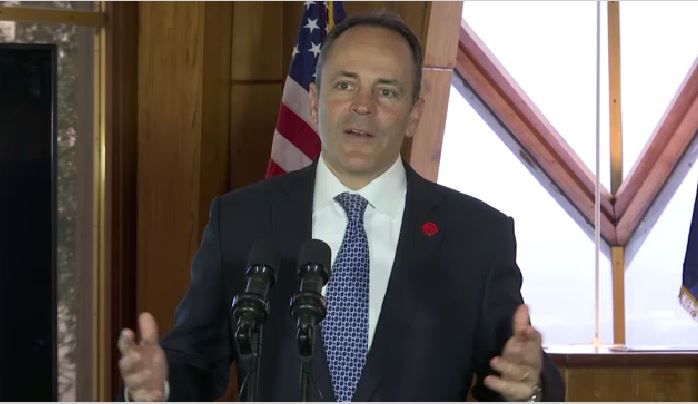FRANKFORT, Ky. - Lawmakers will be back in Frankfort Friday in a special session to address pensions for quasi-governmental agencies and regional universities.
But how will the session look? If everything goes smoothly, Representative Jerry Miller, R-Louisville, says the session will take five days. Here’s a breakdown of each day
- Day 1 (Friday)- Formal gaveling in, roll calls, and filing of the pension bill, assignment to committee (likely House State Government Committee) adjournment.
- Day 2 (Saturday)-Give bill second reading, hear the bill in committee.
- Day 3 (Monday)- House votes on the bill, sends to Senate. Senate gives bill first reading.
- Day 4 (Tuesday)- Give bill second reading, hear the bill in Senate committee.
- Day 5 (Wednesday)- Senate votes on the bill, sends to governor.
Of course, this all depends on members who said they would vote for the bill approving passage of the bill. While the exact bill has yet to be released it will be based on the similar draft bills presented by the Bevin Administration in previous months.
While the bill will provide relief to skyrocketing pension costs, Miller advises this is not a pension reform bill.
“This does not reform anything, simplistically it’s a payment plan. Money’s are owed the current process would ask them to pay more than most of them can pay,” Miller said. “So this is essentially, how do we go from where we are today where the law as it stands requires them on August 10 to pay essentially 85 percent of their payroll as a retirement benefit payment.”
The bill would give employers five options. The first would keep everything the same; the other four would allow agencies or universities to buy out in a lump sum, which the legislature believes will be done by three regional universities, it would be done so in an installment option. This plan offers two options within it, allow employees to stay in the Kentucky Employee Retirement System or don’t allow them to stay in. Employees will not have a say in whether they stay in KERS or are moved to a 401(k) style plan.
Opponents of the bill take issue with employees not being able to choose the fate of their retirements but Miller says it was the employers who opted into the system, not the employees.
There has been controversy surrounding how many votes it will take to pass the legislation, Miller says it will only take 51 votes to pass. Another argument against the bill is it will break the inviolable contract.
“This is clearly not an issue because the Supreme Court just allowed the Kentucky Bar Association in the last 12 months to buy out of the system and take their employees out,” Miller said. “So if it were going to be an issue of the inviolable contract, I think Chief Justice Minton and the Supreme Court would have been a decision then not to allow that to happen.”
The contribution rate freeze will be retroactive to July 1 while the other changes won’t go into effect until after lawmakers adjourn the 2020 session. Miller says this will allow those affected to decide what plan works best for them and if any unfairness is discovered within the bill they can address it during the budget session.
House Democrats have their proposal they would like heard—although it’s unlikely that will happen.
“Our proposal has been vetted by the governor’s chosen actuaries; it’s received positive feedback from those affected; and it provides more certainty and stability for the agencies, their employees, the state retirement system and state government. It would be immoral to pass a bill that does anything less,” House Leadership said in a statement Monday.
Lawmakers gavel on Friday at 8:00 am.







